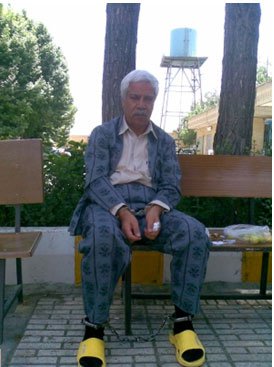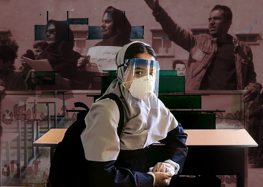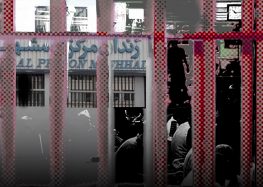Mashad’s Prison Is Hell, Says Political Prisoner’s Wife

Hashem Khastar, prisoner of conscience
Hashem Khastar, leader of the Mashad Teachers Union and prisoner at Mashad’s Vakilabad Prison, was transferred to the ward for murder and drug trafficking convicts after publishing a letter exposing the inhumane conditions and secret executions at Vakilabad. In an interview with the International Campaign for Human Rights in Iran, Sedigheh Maleki, Khastar’s wife, expressed concern about his conditions. “Two days after Mr. Khastar was transferred from the ward of prisoners of conscience to Ward 5 which is where murderers and other hardened criminals are kept, I went to the Revolutionary Court to find out the reason for his transfer. One of the officials told me that because he wrote letters about the conditions at Vakilabad Prison, he was transferred to another ward so that he can directly experience the other things that happen in this prison. He told me to leave and that they would transfer Mr. Khastar back to the ward of prisoners of conscience, which has not happened so far.”
Hashem Khastar, a former teacher at the Agriculture Technical High School, is an agricultural engineer and Head of the Mashad Teachers Union. He was arrested on 16 September 2009 while taking a walk in a park and was transferred to Vakilabad. Khastar was sentenced to six years in prison. An appeals court later reduced the prison sentence of the lower court to two years. He has written three letters to Head of the Judiciary regarding the dire and inhumane conditions and secret executions at Vakilabad Prison.
“Mr. Khastar says Ward 5 is very crowded and that he sleeps on the floor. Sixty inmates are kept in a room with 15 beds; so 15 people sleep on beds, eight people sleep on the floor, and the rest sleep in the hallways. With this many inmates, the ward is always noisy and its environment is filthy and full of smoke. There is always a line for its bathroom and showers. What can I say?! If you have heard a description of hell, you could use it for Mashad’s Vakilabad Prison,” said Maleki.
“When the ward is so crowded, there are scuffles for sure. He knows we are very worried for him, so he doesn’t say anything and always just says ‘don’t worry, everything is O.K.’ But someone who was previously imprisoned in that ward told us that the ward is so crowded that prisoners continually step on each other’s feet, or sometimes someone just gets up and throws his drinking glass across the room and a lot of fights break out. Many inmates in that ward are either on death row or have life sentences, therefore they are stressed out and I don’t know if, God forbid, something should happen to my husband, how the authorities would be accountable,” continued Maleki.
“I worry for his health. He is seriously weak. Before he went to prison he weighed 87 kilograms, but he now weighs about 60. Though he was healthy before he went to prison, he is sick now. He has high blood pressure. During our visits, when I ask about his health he says that he has not yet recovered since his operation. Despite our requests after his surgery, he has not been given one day of furlough.”






